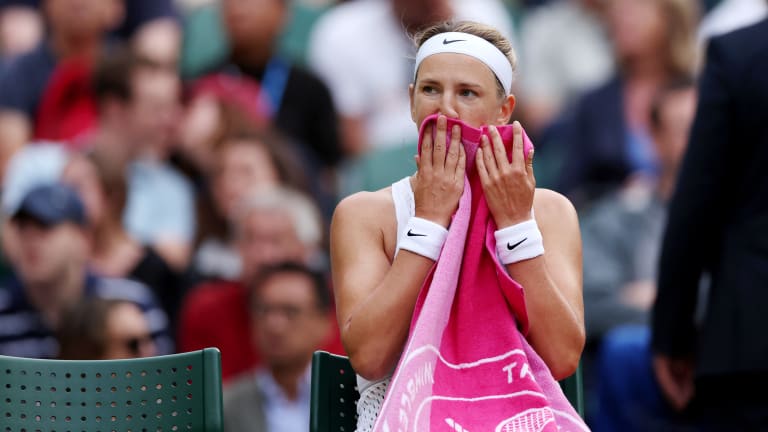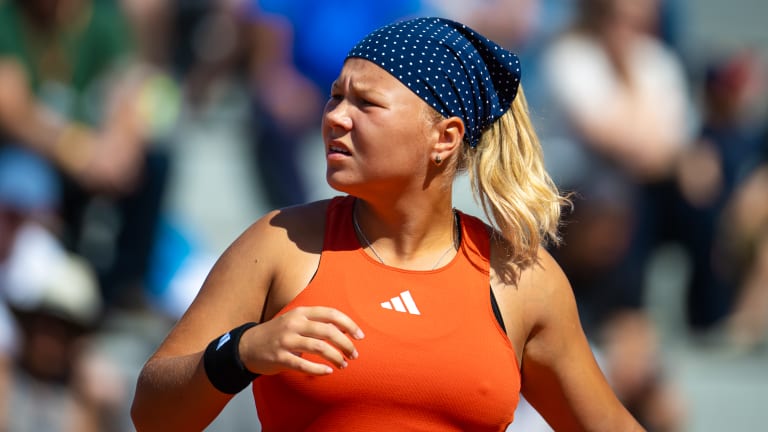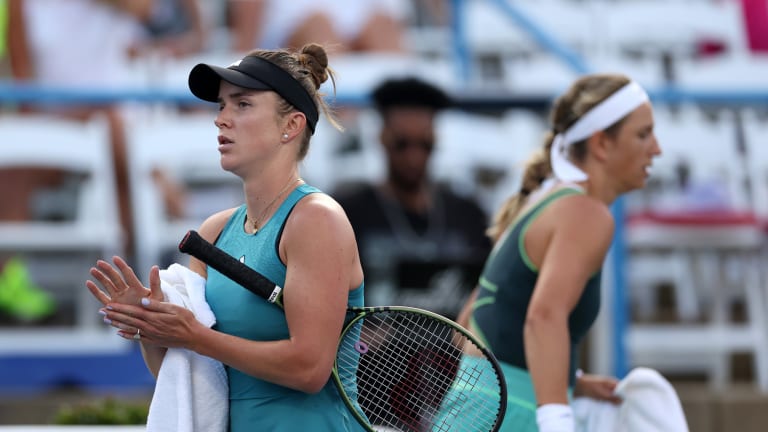They Said What?
Czechmate, Russia: Tennis may no longer be able to avoid choosing sides
By Aug 02, 2023They Said What?
'Big Brother' is watching ... tennis: Many eyes, in many ways, are on the sport in 2025
By Feb 13, 2025They Said What?
“There’s nothing wrong with not being Novak”: Sloane Stephens gets candid on Tennis Insider Club podcast
By Oct 21, 2024They Said What?
"New Heights" with Stefanos Tsitsipas
By May 15, 2024They Said What?
A Class Act, Easily Ignored: Kudos to Ons Jabeur
By May 06, 2024They Said What?
Luca Nardi defeats Novak Djokovic: Teachable moments from a stunning upset
By Mar 12, 2024They Said What?
Are we witnessing a new Daniil Medvedev?
By Jan 25, 2024They Said What?
Dayana Yastremska's racquet is doing the talking at the Australian Open
By Jan 22, 2024They Said What?
Deciding when to retire is a unique case for tennis players. Just ask Andy Murray
By Jan 18, 2024They Said What?
Roger Federer may not be tennis' GOAT, but as Rafael Nadal articulated, he's a 1 of 1
By Jan 06, 2024Czechmate, Russia: Tennis may no longer be able to avoid choosing sides
When it comes to the war in Ukraine, the veneer of normalcy that the tennis agencies have been clinging to is a crumbling luxury.
Published Aug 02, 2023
Advertising
Advertising

Victoria Azarenka was booed off court at Wimbledon after she and Elina Svitolina did not shake hands following their fourth-round match.
© Getty Images
Advertising

A semifinalist last week in Hamburg, Diana Shnaider was among the Russians denied entry to the Czech Republic this week.
© 2023 Robert Prange
Advertising

Azarenka and Svitolina played again this week in D.C., where a message stating they would not shake hands was displayed on screens in the stadium.
© Getty Images